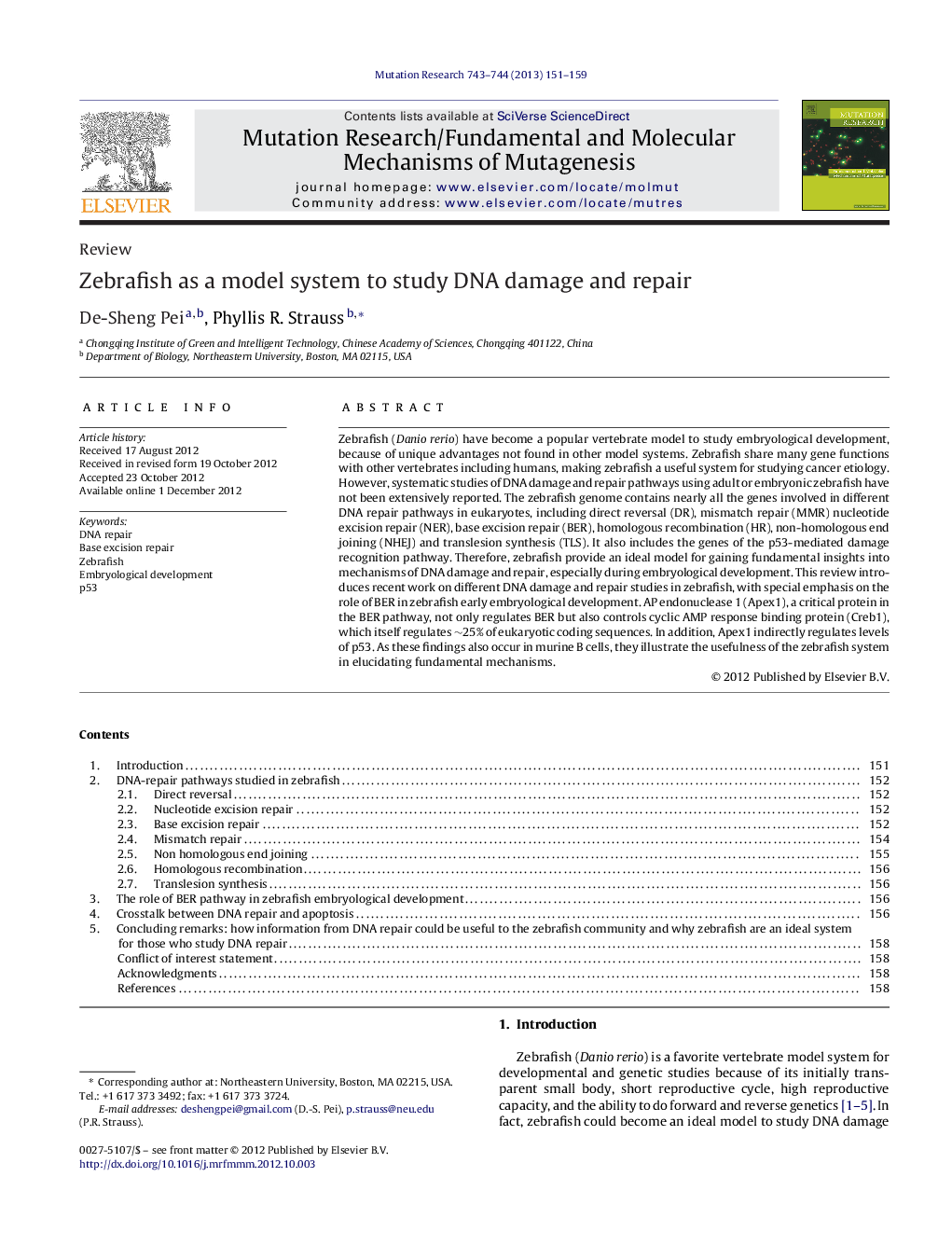| Article ID | Journal | Published Year | Pages | File Type |
|---|---|---|---|---|
| 2146438 | Mutation Research/Fundamental and Molecular Mechanisms of Mutagenesis | 2013 | 9 Pages |
Zebrafish (Danio rerio) have become a popular vertebrate model to study embryological development, because of unique advantages not found in other model systems. Zebrafish share many gene functions with other vertebrates including humans, making zebrafish a useful system for studying cancer etiology. However, systematic studies of DNA damage and repair pathways using adult or embryonic zebrafish have not been extensively reported. The zebrafish genome contains nearly all the genes involved in different DNA repair pathways in eukaryotes, including direct reversal (DR), mismatch repair (MMR) nucleotide excision repair (NER), base excision repair (BER), homologous recombination (HR), non-homologous end joining (NHEJ) and translesion synthesis (TLS). It also includes the genes of the p53-mediated damage recognition pathway. Therefore, zebrafish provide an ideal model for gaining fundamental insights into mechanisms of DNA damage and repair, especially during embryological development. This review introduces recent work on different DNA damage and repair studies in zebrafish, with special emphasis on the role of BER in zebrafish early embryological development. AP endonuclease 1 (Apex1), a critical protein in the BER pathway, not only regulates BER but also controls cyclic AMP response binding protein (Creb1), which itself regulates ∼25% of eukaryotic coding sequences. In addition, Apex1 indirectly regulates levels of p53. As these findings also occur in murine B cells, they illustrate the usefulness of the zebrafish system in elucidating fundamental mechanisms.
► Review of the current status of DNA repair studies in early development. ► Emphasis on base excision repair and AP endonuclease1. ► Zebrafish as a rich opportunity to interface two widely divergent fields. ► High medical relevance for neurodegenerative disease and aging.
